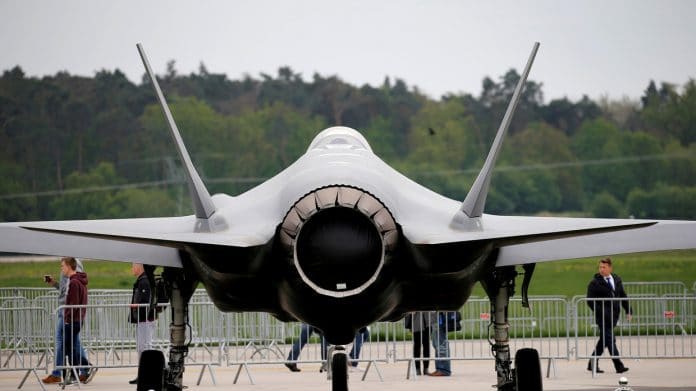The UK Ministry of Defense insisted that there is nothing to worry about after a Chinese company was found producing circuit boards for the F-35 jet, making the fuss about omnipresent Beijing spies ever more stupid.
Exception PCB, a Chinese-owned corporation based in Gloucestershire, England, produces the circuit boards that regulate the F-35 Joint Strike Fighter’s motors, heating, fuel and navigation technologies for the most expensive weapon ever produced to date.
While the UK’s Defense Ministry maintains that the firm is a well-established provider to the defense industry and poses “no danger,” months of flying the China-spying narrative have accomplished their work, and UK press and leaders are up in arms over this “shocking disclosure.”
“We have been completely and utterly naive about the role of China and it is only now that people are beginning to wake up,” former Tory Minister of Defense, Sir Gerald Howarth, told the Telegraph he was concerned with Chinese involvement in a classified defense program.
Shenzhen Fastprint bought Exception PCB in 2013, never concealed its Chinese ownership and also worked on the Eurofighter Typhoon fighter jet and Apache attack helicopter, among other sensitive programs.
“Exception PCB has no visibility or access to any sensitive program information and there is limited to no risk associated with their minimal role in the program,” Lockheed said, adding that they had alternate sources of supply to draw from “should Exception PCB be determined an unapproved source in the future.”
This is not the first time that the U.S. military has hidden Chinese engagement in the supply chain of the F-35. In 2014, in its attempts to maintain the cost-overrun-plagued program on timetable, the Pentagon requested numerous waivers to a ban on using Chinese-built parts. Suppliers Northrop Grumman and Honeywell were both allowed to use Chinese-made magnets in the aircraft’s radar scheme and landing gears as the Pentagon anticipated that further delays in the project would result in overseas orders required to fund it, eventually causing a Government Accountability Office inquiry into whether the “error” was produced “knowingly and willfully.”
The nonchalance with which Chinese sections were used by both US and UK defense ministries should raise concerns, if nothing else, about the Huawei espionage panic. The US banned Huawei from doing business with American telecommunications companies and made a concerted effort to have Huawei and other Chinese tech companies blacklisted across Europe to the point of threatening to freeze the UK from the Five Eyes intelligence sharing network simply by suggesting that the Chinese company could bid on a peripheral component of the country’s 5G.
Another Chinese company, however, is just okay producing its top-secret army gear. This is because the US is not really concerned about the safety hazards of Huawei machinery, according to John Suffolk, Chief Security Officer of Huawei, who provided US authorities the chance to inspect their devices in whatever manner they need to verify the lack of the dreaded backdoors.
Instead, they are afraid of rivalry, both in technological growth and in controlling worldwide communications networks. As Suffolk has more than once pointed out, it is U.S. technology that has been armed to monitor the whole earth. And competitors don’t take it lightly.
